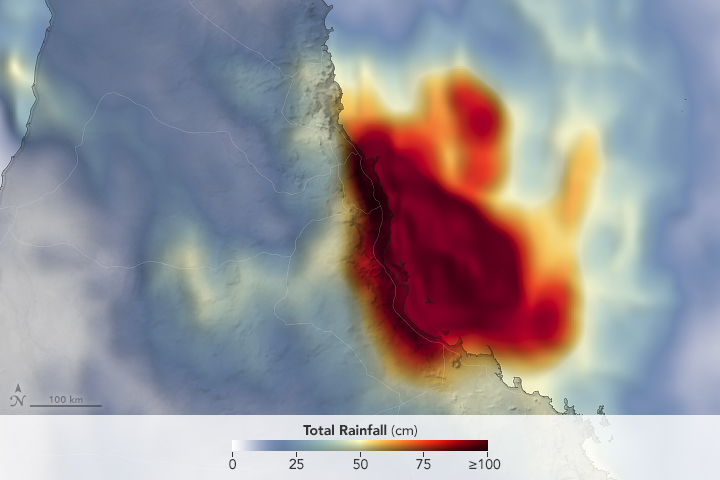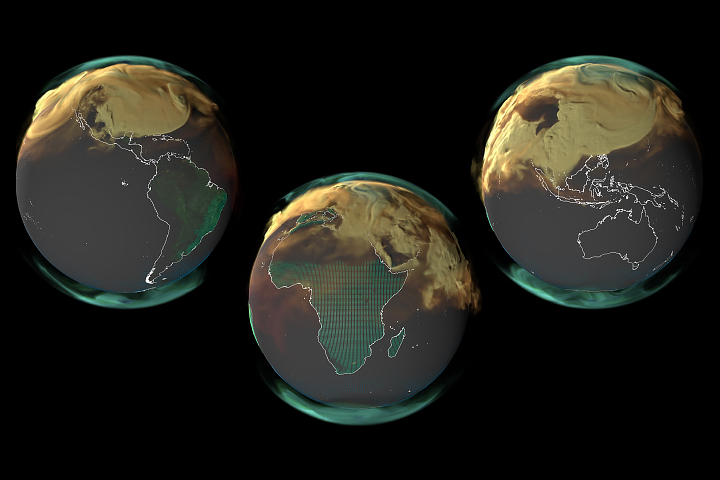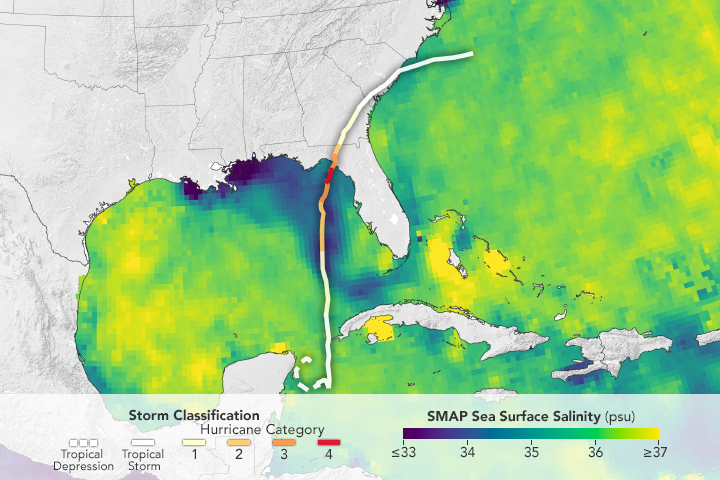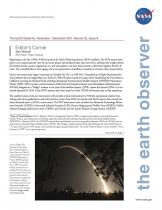



Recent Imagery
You will be directed to the NASA Visible Earth webpage when you select Images by Mission below, or click on the images at right that are randomly generated to represent four out of all possible topics.
The Earth Observer has a new look! Visit the NEW Earth Observer website.
The Earth Observer: Nov - Dec, 2011
In This Issue
Click title below to view page
- Editor’s Corner Front Cover
- Feature Articles
- Chronicling the Landsat Legacy 4
- The DEVELOP NAtional Program Works With the Group on Earth Observations on Air Quality, Public Health, and Water Quality: An International Collaboration Between the U.S. and Mexico 11
- Meeting/Workshop Summaries
- The State of Research and Questions About Future Changes in the Boreal and Arctic Zones 16
- Aura Science Team Meeting Summary 21
- Ozone Monitoring Instrument Science Team Meeting Summary 23
- The Soil Moisture Active Passive (SMAP) Applications Program at the 2011 SMAP Applications Workshop 24
- Landsat Science Team Meeting 26
- CERES Science Team Meeting 32
- SORCE Science Team Meeting Summary 35
- In The News
- NASA Launches Multi-Talented Earth-Observing Satellite 48
- Watching the Birth of an Iceberg 49
- NASA-NOAA Data Show Significant Antarctic Ozone Hole Remains 50
- Regular Features
- NASA Earth Science in the News 52
- NASA Science Mission Directorate – Science Education and Public Outreach Update 54
- Science Calendars 55
Editor's Corner
Steve Platnick, EOS Senior Project Scientist
Beginning in the late 1990s, NASA launched the Earth Observing System (EOS) satellites. The EOS sensors have given us an unprecedented view of our home planet and produced data that have led to striking new insights about the Earth’s clouds, oceans, vegetation, ice, and atmosphere, and how these systems collectively regulate Earth’s climate. The venerable fleet is now aging, and a new generation of satellites is needed to continue those observations. Such a new sensor suite began its journey on October 28, 2011 at 5:48 AM. A beautiful arc of light illuminated the clear predawn sky as a...
Read more...

